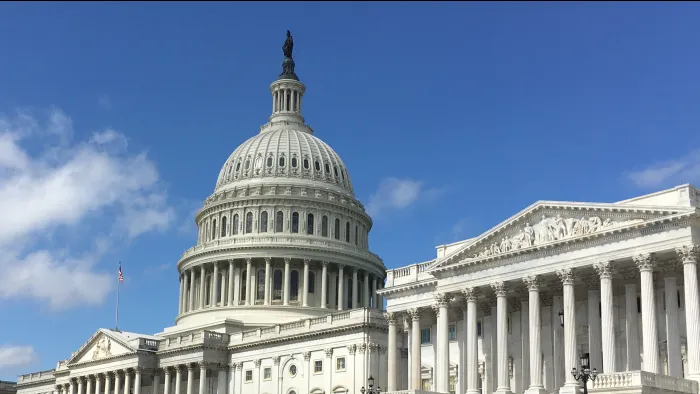Fifty-five STS advocates gathered in Washington, DC, on March 4 to engage with lawmakers on important policy issues, including protecting Medicare reimbursement and NIH research funding, and expanding access to lung cancer screenings. Participants from 23 states and the District of Columbia met with more than 110 Senate and House offices, while also participating in various off-the-Hill events and meetings with lawmakers.
The timing of this event was especially critical, as Washington, DC, is currently engaged in negotiations over government funding. Our advocates took this opportunity to present the priorities for the STS, its members, patients, and the communities they serve. Throughout the day, advocates worked to educate lawmakers and their staff, urging them to address the ongoing threats to research funding and physician reimbursement.
Leadership Efforts Drive Key Healthcare Legislation and Recognition
Dr. Tessa London-Bounds, STS 2025 Advocate of the Year, along with Amanda Crabtree, RN, shared their experiences as advocates, highlighting their work to improve access to care for Kentucky patients. Their advocacy efforts led to the unanimous passing of House Bill 31 by the Kentucky legislature, which allows Medicaid patients to use at-home blood testing machines. Gov. Andy Beshear signed the bill into law on April 4, 2024, just four months after its introduction.
Dr. Keith Naunheim, presented Rep. Mariannette Miller-Meeks (R-IA) with the 2025 STS Legislator of the Year award. As a longtime ally for STS, Rep. Miller-Meeks has championed efforts to address cuts to Medicare physician reimbursements. She also played a key role in promoting the Accelerating Kids’ Access to Care Act through the House of Representatives. Additionally, her leadership was instrumental in spearheading a bipartisan "Dear Colleague" letter last year that garnered 232 signatures in support of physician reimbursements.
